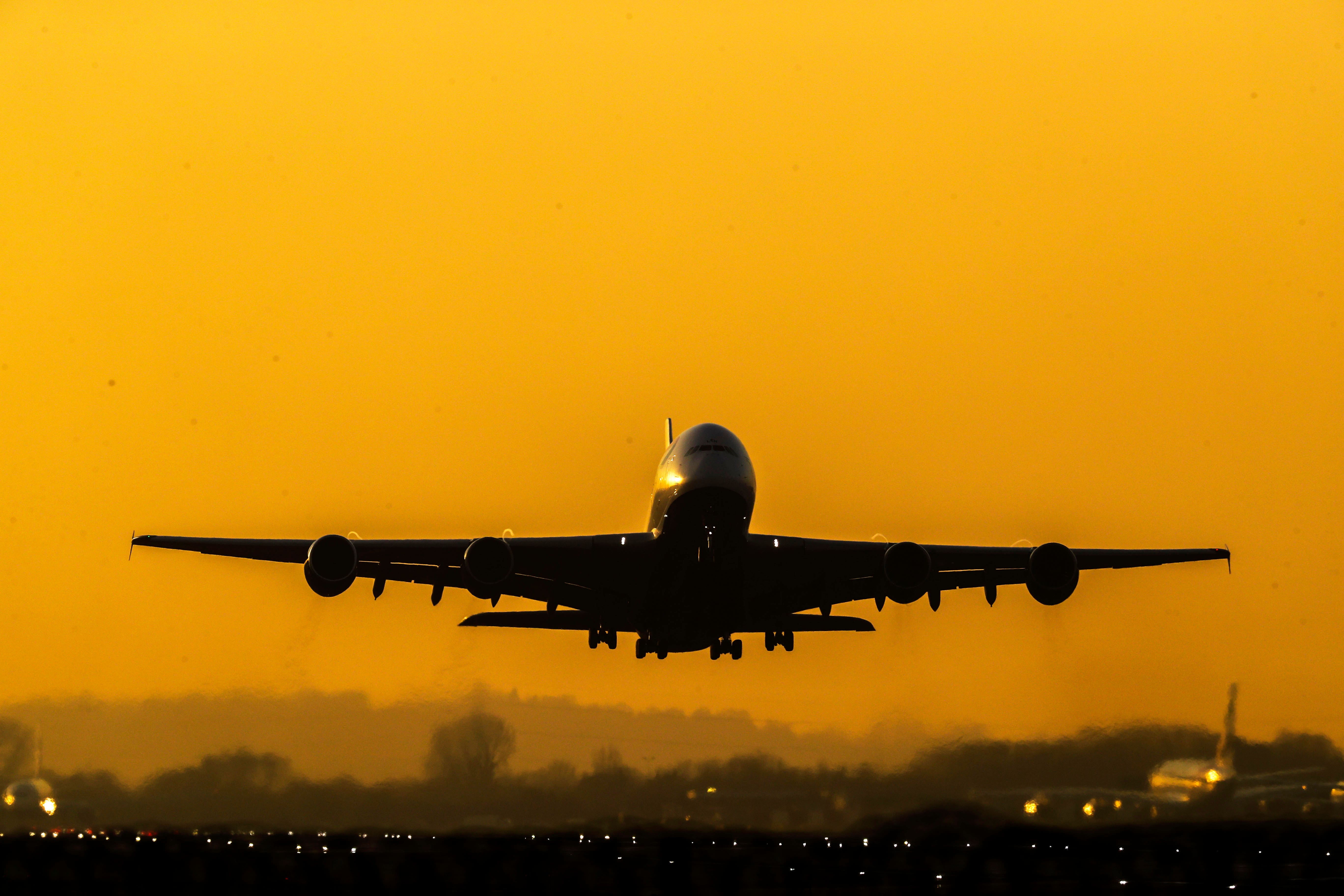Airlines fear UK plans for greener jet fuel could fail
Trade body Airlines UK urged ministers to consider introducing a pricing mechanism for sustainable aviation fuel.

UK ambitions to produce greener aviation fuel could fail without further financial support from the Government, airlines have warned.
Tim Alderslade, chief executive of trade body Airlines UK, said manufacturing sites for sustainable aviation fuel (SAF) will not get built unless producers believe they will achieve a return on their investment.
He urged ministers to consider introducing a pricing mechanism for SAF as it is currently several times more expensive to produce than traditional jet fuel.
Without that certainty on price, we're not going to get those five plants up and running
The UK has an ambition for at least five commercial-scale SAF plants to be under construction in the UK by 2025.
The Government has invested money in the development of the sites, and proposed that airlines operating in the UK must ensure SAF makes up at least 10% of their jet fuel by 2030.
“Despite the planned mandate, despite the money they’ve already announced, we don’t have SAF in this country,” Mr Alderslade told reporters at the annual convention of travel trade organisation Abta in Marrakesh, Morocco.
“Everything that the investment community and the producers are saying to us is without that certainty on price, we’re not going to get those five plants up and running.
“They want to make sure that they’re going to get a return on the money they’re investing.
“That comes from the price.
“Ultimately, they want to make sure that the price they will get from the airlines for a nascent product is going to provide a solid return.”
SAF is produced from sustainable sources such as agricultural waste and used cooking oil, and reduces carbon emissions by 80% compared with kerosene.
It can be blended with standard aviation fuel at up to 50%.
Mr Alderslade expressed fears that ministers could be satisfied with importing SAF rather than creating it domestically.
He said: “The worry is that they will coalesce around this idea that we can’t win at everything, the US is surging ahead, there are other parts of Europe that are looking into doing SAF, we’ll just import everything.”
Importing SAF would mean UK airlines would mean “giving up” on jobs and investment, and be “risky” in terms of price fluctuations and supplies, Mr Alderslade warned.
He added that producing SAF is critical for greener flying.
“For long-haul flying it is the only game in town currently,” he insisted.
“You can’t decarbonise long-haul flying without SAF as things stand.”
Abta chief executive Mark Tanzer added to the call for the Government to “incentivise the development of low-carbon fuels”.
He said: “The Government’s growth agenda demands this, and the alternative of simply taxing emissions will thwart their own ambition.”
There's just so much greenwashing going on unfortunately
James Thornton, chief executive of global holiday business Intrepid Travel, stated that investment in renewable energy sources should be a priority for the UK.
He said: “True decarbonisation is linked to transportation.
“Until we are able to find better renewable energy sources for airlines, it’s going to be very, very hard to make a sizeable difference.
“I think that’s where the Government can play the best role.”
He added: “There’s just so much greenwashing going on unfortunately.
“There’s lots of manifestos and desire, but the minute something else happens it just seems to go off the agenda.
“But I think it’s increasingly going to become a situation where it can’t go off the agenda.”
A Department for Transport spokesperson said: “Our sustainable aviation fuel programme is one of the most comprehensive in the world and we continue to work closely with industry to kick start its production in the UK.
“As part of this, our £165 million Advanced Fuel Fund is providing investors with reassurance while helping to deliver our ambition of having five commercial SAF plants under construction in the UK by 2025.”
Bookmark popover
Removed from bookmarks